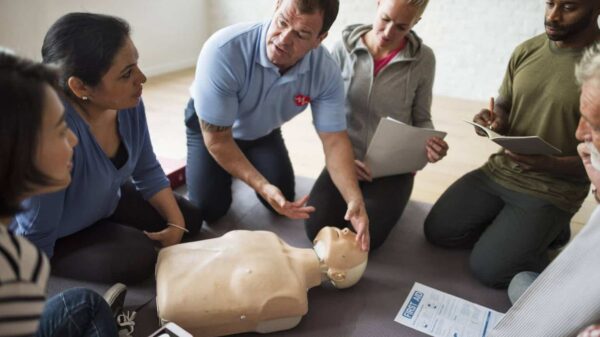In the United States alone, 4-5 million people are affected by dementia. While aging often brings about a gradual decline in memory capacity and cognitive functioning, dementia is much more severe. Over time dementia reduces a person’s physical and cognitive functions to the point where they can no longer care for themselves and can cause memory loss, as well as changes in behavior and personality.
Dementia itself is not a disease, but the term given to several symptoms, including memory loss, and difficulties with language, thought processing, and problem-solving. Dementia can be a symptom of a disease such as Alzheimer’s.
When someone you love develops dementia, it can be difficult to know what to do for the best. It is hard to let go of the person you knew but refusing to accept their condition is only going to worsen the situation for all involved. There is no cure for dementia so the most likely prognosis is that your loved one will continue to deteriorate, but that does not mean that you cannot still have a significant impact on the quality of their life. This article outlines five important ways that you can help a loved one who has dementia to live a full and happy life for as long as possible.
- Social Interaction
Social interaction, whether they recognize who they are talking to or not, is essential at all stages of dementia. Maintaining connections with others is not only important in terms of their emotional well-being, but also in terms of slowing the progress of dementia. Loneliness has been linked with deteriorating cognitive functioning. Even a simple conversation that requires them to make choices, respond emotionally, and recall facts can be beneficial. In addition, the more social a person with dementia is, the more likely it is they will take part in other beneficial therapies and engage in physical exercise.
- Therapy
To slow their memory loss, it can help to recall memories and reminisce about their past with them. By focusing on positive memories from their past, you can help to boost their mood, slow cognitive deterioration, and bring stability to their behavior. Reminiscing therapy involves presenting the person with objects like books, photos, or possessions and/or playing songs that they listened to many years ago. This can help to bring the past back to life and help them to recall more memories. In extreme cases, entire rooms have been decorated to remind people of a time period from their past.
Other beneficial therapies often recommended for people with dementia include music and/or art therapy. Playing music that is familiar to them and provokes positive memories from their past can transport them to another time and help them to recall their past. This not only improves their mood and helps them retain their identity but can also help with pain relief in some cases. Music therapy can also involve playing musical instruments and/or creating music with others. Similarly, art therapy gives people the chance to set their creativity and imagination free while simultaneously enabling them to communicate emotions, depict important memories, and tell their story.
- Nutritious Diet and Regular Exercise
Following a healthy diet can be a challenge for anyone at any stage of life, but when dementia is involved, it can be almost impossible. The cognitive and physical difficulties faced by dementia sufferers make preparing and eating food regularly a challenge, particularly when they are unable to use cutlery, chew, and/or swallow food. Some people may become aggressive at mealtimes out of confusion and frustration, and all this can have a detrimental impact on their nutrition. It is sometimes best to offer food in small amounts throughout the day rather than presenting your loved one with 2-3 large meals. Click here for information on recommended foods for people with dementia.
Physical exercise is also important for people with dementia as it enables people to maintain their independence for as long as possible, improves the circulation of blood to the brain, boosts cardiovascular health, and triggers the release of mood-boosting endorphins. Exercise also improves muscle and skeletal strength, which can prevent injuries. Exercise also gives people a greater sense of independence and can provide more opportunities for social interactions.
- Safe and Calming Home
The environment that a person with dementia lives in is crucial to their quality of life. They may still be able to live independently for a long time after their diagnosis, as long as you have removed safety hazards and are visiting regularly. This might include removing trip hazards, improving lighting, and removing sharp objects and electrical devices.
When the time comes when they are no longer able to live in their own home, but they still want to retain some independence, moving to a memory care living facility could be ideal. In these facilities, they can have their own space while being monitored and supported by 24/7 medical staff accessing a tailored memory program. These programs are designed to enrich the lives of people with dementia and are tailored to each individual to ensure they live happily in health and dignity.
- Showing Respect and Patience
Living with dementia brings worsening memory loss and deteriorating cognitive functioning, which is frightening, disorientating, frustrating. When the sufferer is no longer able to communicate their worries and emotions, and they struggle to complete daily tasks or even to recognize the people around them, these issues only become more intense. All this can make their behavior and conduct towards others challenging, but it is crucial to ensure they always get the patience and respect that they deserve. It is not fair to discount their emotions or opinions, and they should be addressed directly and included in conversations wherever possible.
Even when a person is no longer able to communicate verbally, their facial expressions and body language will give you plenty of information about their feelings. When you cannot converse as you used to, turn to physical reassurances, and use a calming tone of voice.
In conclusion
There are several stages of dementia, and the rate of its progression will vary from person to person. Many people diagnosed with dementia still retain their identity, interests, and personality for years, and even when their condition is more advanced. They are still able to find joy in activities and social interaction. By ensuring that your loved one has the best possible quality of life, you will be both showing them the respect they deserve and potentially slowing the progression of their condition.






























































